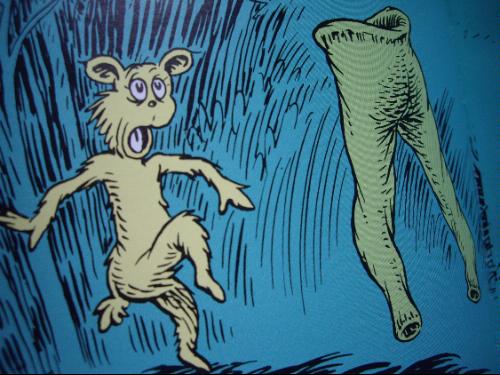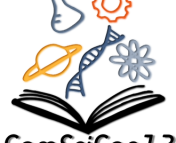Some of you are very good at talking about your research. You can explain your summer research project to your history professor in 20 seconds. You can put your research into context for your grandmother. This essay is not for you, unless you’re too good at it; in that case, you should really have a read.
When I was an undergrad, speaking about my studies or my summer research project to people outside my field was scary. Now, believe it or not, a decade later, it’s still scary! Here are two conversations I’ve had again and again:
I’m meeting someone and he asks, “So you’re studying astrophysics. What specifically?” I say, “Well…have you got five minutes?” No actually, I’ve never asked this before. I always mean to, but instead I find myself five minutes deep into an explanation, realizing he’s lost and I’m embarrassed.
Or I’m relaxing at home with my wife and she asks, “So what’d you do today?” I say, “I checked on my simulation with the LS220 equation of state. It crashed last night. I started a few test simulations, trying different atmosphere treatments, but I don’t know. Oh, and I wasted a whole bunch of time with git trying to retrieve some commits from a branch I’d deleted last week. That’s so freaking hard!” No actually, I’ve never gotten this far, because Darci interrupts me and says, “I want to know more about what you just said, but I don’t even know where to begin, what to ask.”
How do you share your research life with people who want to know?
These are scary conversations for me because sometimes…well, they just go badly. Not always, mind you. Sometimes there’s a thrilling connection, a courageous effort by some friend or family member to learn about what I’m learning; sometimes I walk away with a new, enriching perspective on my studies. But when it does go badly, it’s really uncomfortable for me. I feel intellectually lonely. I wonder if I really understand what I’m doing after all.
But these conversations aren’t just scary for us scientists. They’re probably scary for our interlocutors too. It’s intimidating to talk to a specialist. Think of asking the car mechanic to explain what’s wrong with your sedan, or of talking to a pro athlete about a sport you don’t know, or of asking an artist about his work. It’s scary.
One of my favorite Dr. Seuss stories tells about a furry little creature with cute little feet and tapered fingers having repeated frightful encounters in the wilderness with…a pair of pants! Aagh! The tension builds and builds, and believe me, it’s horrifying, until a few pages from the end, the creature discovers that the pants are also afraid of him! They’ve been running away from each other. With their vulnerabilities revealed, they share a warm hug and become fast friends.
I think conversations about our specialties are the same. Let’s remember to stop for a second, maybe share a warm hug with our conversation partners (okay, a handshake if you just met). They’ve been courageous to ask us “what do you do?” or “what did you do today?” It would be a fine thing for a little vulnerability to show through on our side too.
It’s not all that bad to be ignorant about parts of the world; we all are. Our conversation partners are ignorant about our fields of research. And we’re ignorant about…well, really about the same thing. Our summer research topic is vast, we’ve been struggling with it for months. The class we’re taking is only the tail of the elephant. We’re still learning from our advisors, our teachers, from papers, from fellow students, even from the guy we just met, from our close friends. In fact, learning is our specialty. Our research field is a field of ignorance. We’re here to listen and learn. It’s fun!
My wife recently told me, “I understand so much more of the context of what you’re doing today than I did last year. It’s little bits, little conversations that build that.” And also, “It’s intimidating talking to you about astrophysics, yeah, even you! But it really helps when it’s clear that you’re struggling to explain or understand something.”





This is a cool piece. I totally sympathize, as I’m sure most people do, but what’s the point of doing science if we can only communicate it to an elite few? Nicely done.